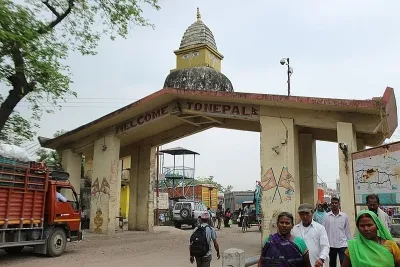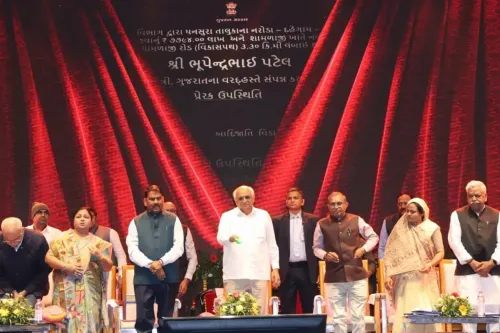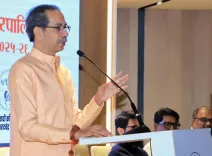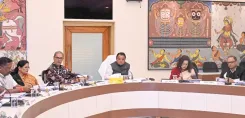Will JP Nadda Inspire Bihar Voters to Embrace Democracy?
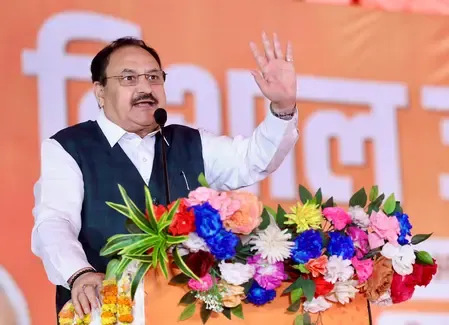
Synopsis
Key Takeaways
- Voter turnout is critical for shaping Bihar’s future.
- Security measures are enhanced to ensure a peaceful election.
- First-time voters play a significant role in the democratic process.
- Election outcomes will impact state governance for years to come.
- Active participation is encouraged by political leaders.
New Delhi, Nov 11 (NationPress) As Bihar embarks on the second and final phase of the Assembly elections, BJP President and Union Minister J.P. Nadda on Tuesday called upon all voters, particularly the youth casting their votes for the first time, to engage actively in this magnificent celebration of democracy and to make their voices heard to propel the state's development journey.
On social media platform X, Nadda stated, “First vote, then refreshments. Today, the people of Bihar are voting in the second phase for a brighter future. All voters, especially first-time young voters, are encouraged to take part in this grand festival of democracy and to cast their votes to rejuvenate Bihar's development journey. Your priceless vote will be instrumental in creating a robust and thriving democracy and a prosperous Bihar.”
Earlier, Prime Minister Narendra Modi also reached out to Bihar's voters, urging them to participate actively in the second and final phase of the state Assembly elections, and to not just vote themselves but also motivate others to do the same.
“Today marks the second and final phase of voting in the Bihar Assembly elections. I implore all voters to engage actively in this process and set a new voting record. I have a special appeal to the young individuals voting for the first time to not only cast their votes but also encourage their peers to do the same,” PM Modi expressed in a post on X.
Meanwhile, Bihar is experiencing the concluding phase of the crucial Assembly Elections 2025, where voting is taking place across 122 constituencies spanning 20 districts.
This final phase will significantly influence the future composition of the next state government, wrapping up weeks of intense campaigning.
In total, 1,302 candidates are contesting, including 136 women and one third-gender candidate, covering parts of central, western, and northern Bihar. Approximately 3.7 crore voters, comprising 1.95 crore men and 1.74 crore women, are eligible to vote at 45,399 polling stations, the highest ever established for an election phase in the state.
The Election Commission has implemented extensive measures to guarantee peaceful and transparent polling. Security has been enhanced at sensitive booths, with paramilitary forces stationed in crucial areas. Furthermore, several locations along the India-Nepal border have been sealed to deter any potential cross-border movement or illegal activities that could disrupt the electoral process.
The results of this phase are anticipated to determine the power dynamics in the 243-member Bihar Legislative Assembly, as both the ruling coalition and opposition alliances compete for a decisive majority.
The first phase of the Bihar Assembly elections concluded peacefully on November 6, boasting a record voter turnout of 64.66 percent, the highest in the state's electoral history, according to Chief Electoral Officer (CEO) Vinod Singh Gunjiyal.
A total of 121 Assembly constituencies across 18 districts participated, with 3,75,13,302 electors, including 1,98,35,325 males, 1,76,77,219 females, and 758 third-gender voters.
The counting of votes for all constituencies is set for November 14, revealing which alliance has earned the trust of the electorate.


